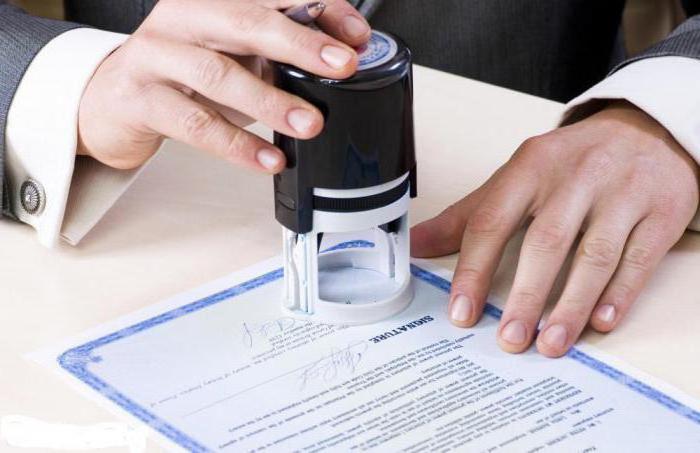Today, a notary is considered one of the most popular and prestigious professions, and there are several reasons for this. To begin with, a thorough knowledge of all laws and regulations makes it possible for a notary to defend his legal rights and interests even in everyday life.
Who is a notary public
In the minds of other people, the image of a notary publicized on a par with other legal professions as a representative of the authorities. And this opens up many doors and gives great opportunities. Finally, most ordinary people believe that the salaries of notaries are quite high. And the most interesting thing is that for many, the profession of a notary is associated with the simple work of signing documents and calculating profits for the provision of their services.
Many applicants prefer legal specialties when entering a university, hoping that this area will contribute to their further successful employment and will ensure a comfortable life for them. In this article we will try to answer the question of what is the profession of a notary public, how to become one and what qualities you need to possess. And also we will understand whether this type of activity is really so profitable and simple, because many issues are resolved through a notary public.
The essence of the notary profession
A notary is a highly qualified specialist, representing an official with the authority to perform notarial acts permitted by the constitution and legislation of the Russian Federation. In the vast majority of cases, in his activity, a notary acts as a representative of the interests of citizens of the country and ensures the fulfillment of their legal needs. For example, it is with a notary public that a will takes on a legal form.
A bit of history
The concept of a notary public came to us from the Latin language and is literally translated as a clerk or secretary. The etymology is explained by the fact that this profession appeared due to the transformation of the previously no less high position of clerk, which was very honorable at the court of the king. It was the notaries who took upon themselves the duties of paperwork when the profession of clerks was abolished. 
For the first time, they began to engage in notarial activity in Ancient Rome. In addition to documents, notaries were also the first to engage in transactions with land. Their activities were also captured by the magistrate, in which they kept a journal of court proceedings.
What has changed in the essence of the profession
So who is a notary living in the current reality?
In the modern world, the profession of a notary is perceived as one of the highest paid and prestigious. However, at the same time, many are still confused in terms, linking the activities of a notary with the work of a lawyer and judge. It is important to remember that a lawyer defends the interests of his client, and a judge resolves disputed legal issues. While notary clearance includes:
- Certification of transactions concluded between individuals or legal entities.
- Confirmation of the authenticity of signatures or documents in general.
- Issuance of certificates, including inheritance rights.
- Validation of the translation of the document.
- Certificate of location of a citizen.
- Proof of identity of a citizen from a photograph.
- Acceptance of legal documents for storage (for example, wills).

In addition, the duties of a notary include advising clients on the obligations and rights, the consequences of signing an agreement.He also performs notarial acts that do not contradict the laws and regulations of the Russian Federation. For example, a power of attorney at a notary will help one person to become an authorized representative of another person.
Personal qualities
In order to achieve success in a particular profession, it is necessary to have a number of qualities. The notary sphere is also no exception.

The professional activity of a notary, in addition to possessing a wide range of knowledge in the field of jurisprudence, presupposes the presence of the following personality characteristics:
- The ability to resolve controversial and even conflict situations. The main purpose of the notary’s work is to exclude the development of conflict in controversial moments. To achieve these goals, the notary needs to be careful, balanced and be able to capture the essence of the client's problem. In the event that a conflict situation does arise, it is his responsibility to resolve the dispute as soon as possible, and in pre-trial procedure, and to conduct a detailed investigation of all conflicting issues. For this reason, the notary is required to be aware of all the legal subtleties.
- The ability to keep in mind a large amount of information and a good memory. The specifics of the notary profession is such that he constantly has to process a huge amount of documentation of various types. Therefore, he not only needs to keep a large supply of information in his head, but also replenish it. And without good memory and the ability to remember, this is almost impossible to do. Such skills allow you to quickly and efficiently process all the necessary information.
- A responsibility. A large volume of government documents and securities is the work of a notary public. A minor mistake made by a notary can not only turn into a big problem for himself, but also create certain difficulties for the client, and sometimes cause an international scandal. That is why it is so important to understand all the subtleties and nuances, but also to approach work with all responsibility.
Pros of the profession
As mentioned above, many seek to get into the notarial profession. Therefore, law schools are always crowded. This happens for a number of reasons, including due to the obvious advantages of the notary profession, which include:
- Extensive career opportunities. Regular replenishment of knowledge in the legal sphere gives the notary the opportunity to create a serious client base and gain respect from the population.
- The notary’s working hours are in constant communication with people. Professional activity is not limited to work with papers. It involves constant personal contact with people of different fields of activity.
- The income from notarial activities allows you to ensure a comfortable life. The average salary of a notary is about 100 thousand rubles per month.
Cons of the profession
However, like every other work, there are certain shortcomings in the activities of a notary public, and they are not particularly few. The main negative aspects of the profession are:
- Competition. And huge. After all, in every even the smallest city in the country you can find notary signs, and quite a lot. Big cities are not much better in this regard. This makes it difficult to open your own notary office and create a good customer base.
- Serious responsibility when working with securities and documents. Even one grammatical error in the execution of the document may become the reason for the transaction to be declared invalid. The responsibility of a notary public extends not only to legality, but also to the correctness of the document.
- The notary may be pressured by those involved in fraud and fraud.Sometimes, to assure a notary of a document with dubious content, fraudsters can threaten the health and life of a specialist and his family members.

After graduating from a university, a specialist will need to work as an assistant notary for at least three years before he can open his own business. It should also be taken into account that for the start of independent activity the work of a notary includes a large amount of practical experience. An important point is that the notary does not have the right to combine legal work with other types of commercial or entrepreneurial activity, including the services of an intermediary in transactions.
Who is a notary public we gradually figured out. What to do to master this profession? About it below.
How to become a notary
You can become a professional notary by graduating from the law faculty of a state university. The first two years of study at the Faculty of Law involve the study of general subjects in law. From the third year, specialized training in the chosen direction of future activity begins. Such a system allows you to change priorities in the learning process. If a student acts with the intention of becoming a lawyer, but in the first few years of training changes his mind and aims at the profession of a lawyer, then he will have the opportunity to change his specialty.
Top notary education institutions
The best legal universities in the country, after which graduates are guaranteed further successful employment, are:
- Moscow State University.
- St. Petersburg State University.
- Moscow State Law Academy.
- Peoples' Friendship University of Russia.
- Perm State University.
Exam
Additional tests for the notary are exam and licensing. The commission on the exam will include from five people or more. Most often, it includes employees of the notarial chamber or the Ministry of Justice. The exact composition of the examination committee is agreed one month before the date of the test. As a rule, the head of the subject is not included in this list.

After a three-year internship, you must inform the authorized person that you intend to pass the exam. Otherwise, the creation of the commission is not implemented. To be allowed to take the exam, you must provide the following documents:
- Passport.
- Graduation diploma.
- Notary employment agreement confirming the completion of the internship.
- Recommendations
Two weeks before passing the exam, you must check whether you are included in the list of eligible for the test. The examination is prescribed twice a year. Each ticket contains three points, including theoretical and practical issues, as well as the preparation of a notarial deed. You can prepare for the exam on questions that will be provided to the subject in advance. Every year, the list of questions is updated, and each of them is unique and inimitable. The examiner is evaluated on a ten-point system by each examiner. The final grade is averaged.
License
After the exam is successfully passed and the score is not lower than seven points, there remains the last obstacle to opening your own notary office. This is obtaining a license for legal activity. In the next five days after passing the exam, a fee must be paid to the state justice authorities. The following documents must be provided:
- Admission to a license, which is issued after the exam.
- Receipt of payment of the fee.

Further, the future notary takes the oath. Documents are processed within a month, after which a license is issued. It may so happen that a license is refused. In this case, a written explanation is provided detailing the reasons for the refusal. The license is revoked if a person begins to engage in other activities.The exceptions are teaching, creativity and scientific work.
Vacancies are not always
Becoming a notary is not easy. Even harder is to become a qualified and sought after specialist. The number of notaries is strictly regulated, vacant places are formed quite rarely. This can happen in the following cases:
- Reaching a retirement age by a specialist.
- Poor health of a notary public. Recognition of him incompetent in court.
- Resignation at will.
- Revocation of a license from a previous notary.
- Significant population growth, which necessitates an increase in the number of notaries.
Thus, in a sense, this is a lottery. Not all assistants manage to get a notary's place after an internship. However, with good motivation and determination, much can be achieved. In any case, it makes sense to get a license, and wait until space is available. From the foregoing, it is more likely to conclude who such a notary is. This is not just a professional in his field, but also a person of luck to some extent.